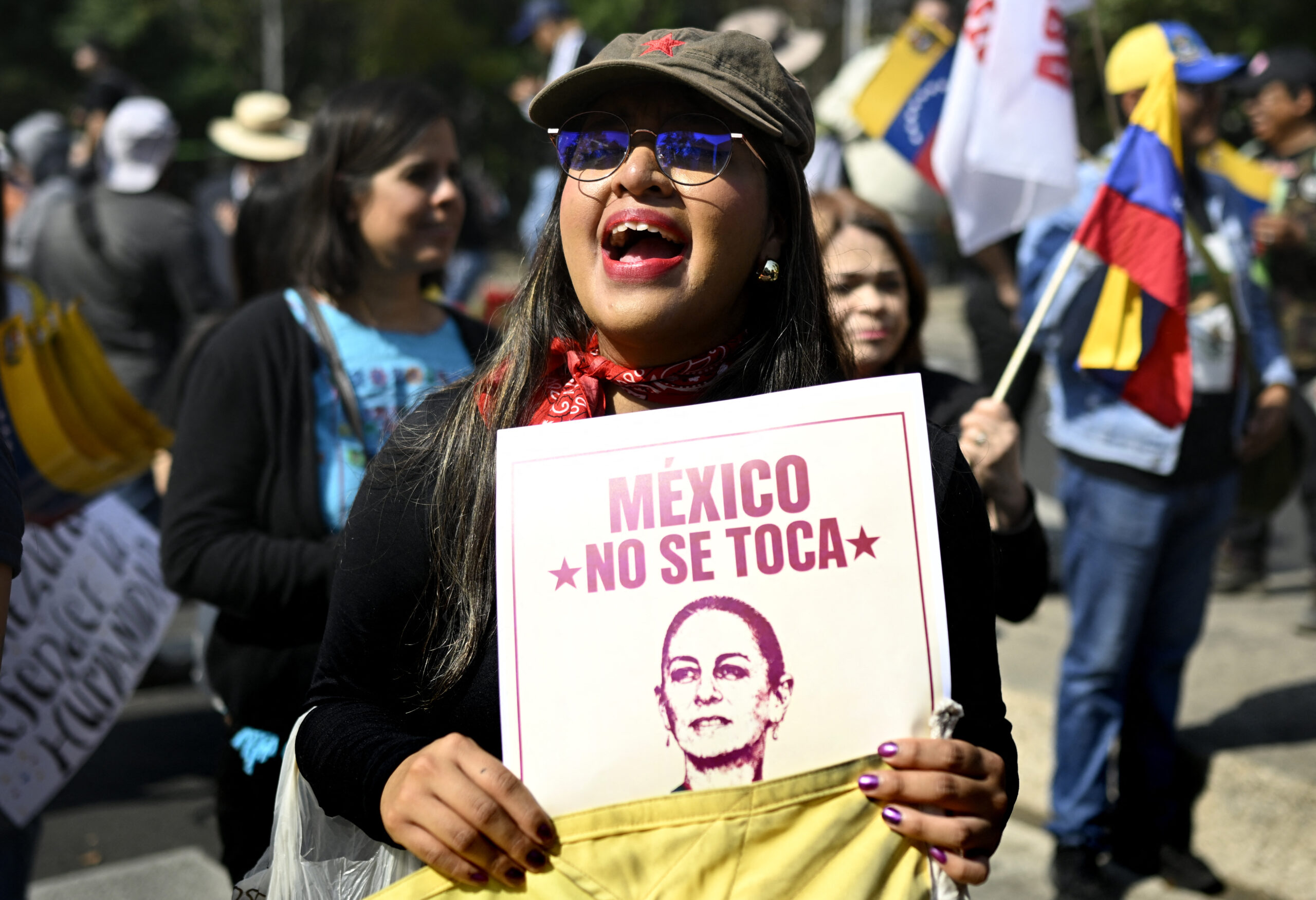Mexico: Investment and Economic Growth
Mexico: Investment and Economic Growth
AS/COA’s March 11 Latin American Cities Conference in Mexico City featured President Felipe Calderon, Finance Secretary Agustin Carstens. Panels included Wall Street analysts and senior-level executives, who assessed Mexico's current business climate, economic outlook, and investment opportunities.
- Felipe Calderón Hinojosa, President of the Republic of Mexico
- Agustín Carstens, Secretary of Finance and Public Credit
- Patricia Espinosa Cantellano, Secretary of Foreign Relations
- Eduardo Sojo Garza-Aldape, Secretary of Economy
- Luis Téllez, Secretary of Communication and Transportation
- Eduardo Andrade, Corporate Director for Latin America, Iberdrola
- Juan Alberto González Esparza, General Director, Microsoft Mexico
- Juan Cento, President, Latin America and Caribbean, FedEx
- Joyce Chang, Managing Director and Global Head, Emerging Markets Research Group, JPMorgan & Chase
- Bruno Ferrari, President and CEO, ProMéxico
- Pablo García, Executive Director, Infrastructure Financing, Grupo Santander
- Shelly Shetty, Senior Director, Sovereign Group, Fitch Ratings
- Susan Segal, President and CEO, Americas Society/Council of the Americas
- Thierry Wizman, Senior Managing Editor, Global Equity Strategy, Bear Stearns & Co. Inc.
Summary
The Americas Society and Council of the Americas hosted their Latin American Cities Conference “Mexico: Investment and Economic Growth” on March 11, 2008. The conference—organized and hosted in conjunction with ProMéxico—brought together over 300 high-level participants to discuss current and future prospects for the Mexican business and financial sectors. Speakers and panelists, including Wall Street analysts and senior-level executives of multinational corporations, assessed Mexico's economic outlook, examined the country’s current business climate and investment opportunities, and described a government agenda for investment and economic growth. In general, panelists expressed confidence in Mexico’s growth potential, the continued development of a favorable business environment, and integration of Mexican businesses in world markets. At the same time, most panelists stressed the continued need for government involvement in infrastructural reform as an important precondition for economic strength.
Remarks by President Calderón
During a keynote speech, President Felipe Calderón emphasizedthe need to strengthen the competitiveness of the North American markets vis-à-vis rival markets around the world. To achieve this end, he cited the current strength of the Mexican state in political and institutional terms. The president said this strength had also carried over into economic and financial sectors during his administration. He echoed the sentiments of other conference speakers, highlighting the importance of infrastructure to economic growth. He noted that the Mexican government has already taken significant steps in demonstrating its commitment to infrastructure development, including an economic policy centered on increased public spending.
The Mexican Economy through the Eyes of Wall Street
During the conference’s opening panel, Wall Street analysts discussed the impact of the weakening U.S. economy on business and investment in Mexico. Bear Stearns’ Thierry Wizman, focusing on the Mexican equities market, concluded that the poor state of the U.S. economy, the threat of inflation, the anti-trust agenda, as well as corporate taxes would make confidence in Mexican stocks relatively poor. On the other hand, Shelly Shetty of Fitch Ratings chose to highlight the continued resilience of Mexican stocks amid tightening global liquidity conditions. She also noted the continued development of domestic capital markets, and the concomitant need to foster greater competition in key economic sectors. All speakers stressed the need to jump-start investment and competitiveness through increased government participation in infrastructural reform.
Investment and Economic Growth
Latin American business leaders—representing companies such as FedEX, Grupo Santander, Iberdrola, and Microsoft—highlighted the importance of active cooperation between the private and public sectors in an effort to strengthen infrastructure and foment economic growth in Mexico. Panelists discussed common challenges, focusing on stimulating entrepreneurial development, as well as on developing access to quality education.
Microsoft Mexico’s Juan Alberto Gonzalez said the task of improving educational opportunities remains linked with improving access to technology and information resources. As part of this point, he cited remarks from the G8 summit of 2000: “Current economic and social strengthening is based on facilitating access, recollection, analysis and use of information and knowledge to broaden the horizons of individuals and allow them to make political, economic, social, and cultural decisions.” The Alliance for Education, he stated, would serve this particular purpose in a concrete way, by providing such services as IT training for teachers and special rewards for innovation within the student population. This program serves as one of the panel’s examples of how the private sector is cooperating with the government in infrastructure building and entrepreneurial development.








